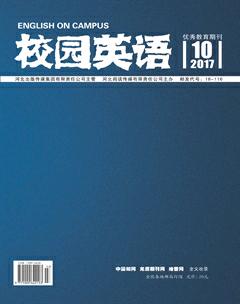The Theme of Golden Child
蔡晨
【Abstract】Golden Child, Chinese American playwright David Henry Hwangs 1998 work, is a comeback after his M. Butterfly in 1993.There are seldom but only few play reviews on its theme and creative theatrical performing order, instead of literary concerns. This essay will give a thorough analysis from different perspective of views through respective comparison, together with David Henry Hwangs ideas on Golden Child, tries to have a better understanding of this play through the de-construction of culture and believes.
【Key words】Golden Child; Wives and Concubines; comparison; progress
Introduction
Golden Child, written by Chinese American playwright David Henry Hwang and put on stage in Broadway in 1998, has the immortal theme of traditional Chinese social culture but unlike the stereotyped ones which were aimed to be eye-catching deliberately to meet the foreign tastes, Golden Child shows us its transcendence in involving believes and liberation. The former are usually considered the accomplice of Orientalism while the latter sincerely portrays a family finally got unbound through belief conversion.
Wives and Concubines, written by Chinese writer Su Tong in 1989 shares a similar culture background with Hwangs Golden Child, —Chinese traditional family constitution—one husband as an authority in the house, with several wives living together, flattering, quarrelling and destroying. Digging into the two works from their sharing perspectives—marriage, belief as well as destination, we witness something eagerly displayed by Hwang, the assimilation and transcendence, peep out from inside. And that is totally different from what is designed to reveal by Su Tong in Wives and Concubines.
Themes and authors views
The above comparisons have clearly witnessed the two works different themes. Su Tong claims his objectivity in creating those women by saying “I just habitually lost my gender in writing instead of what is said of my womanlike spirit”. His purpose is to helplessly reproduce womens tragic fates through depicting their lives in a traditional styled family. For him, literature is a means of recalling emotions from readers and he has never had the thought of evoking actions.
However, quite different from Su Tong, David Henry Hwang wrote this not only for retelling a family story but also making clear his identity as a Chinese American playwright as well as his views upon two cultures. His depiction of women is not for showing pity but for claiming the release of human heart in pursuit of liberation. The seeming tragedy actually implies a hope and goodwill. His work deeply touches some Chinese Americans in self-defining and moves some Americans to give up the previous cultural bias.
In an interviewed collected by Bonnie Lyons, David Henry Hwang makes himself clear about his intension in Golden Child. He hopes that the play could be “an anti-fundamentalist play in the largest sense” for he is definitely “against any belief system that casts things in black or white”. Golden Child is a play about “messiness of change”—religious conversion, and displays the degree to which change destroys people but “is somehow necessary”. Widely speaking, Hwang admits ancestor worship an extension of Confucian belief system, which would better illustrate the conflict in major characters minds.
Golden Child precisely speaks out Hwangs mind. In the interview he frankly says that “although Ive turned away from fundamentalist Christianity, I cant stop hearing those voices—theres still part of me that believes Im going to Hell. I sometimes think of this play as another form of ancestor worship. Im conjuring up the ghosts of my ancestors in my own mind and trying to reconcile myself to them.” His words vividly claims contemporary Chinese Americans minds. In producing this play, Hwang is able to feel a connection to his ancestor.
Conclusion
All the above is unique in Chinese American writings and when we look back to the previously comparison, a transcendence comes into existence. When comparing with Chinese literature, we discern their distinctive blossoms dating back to the same root. To some extent, Golden Child also proofs the worth of the existence of Chinese American writings and the story of cultures—their differences, conflicts, assimilation and transcendence, is an endless The Arabian Nights shining in world literature.
References:
[1]Hwang,David Henry.Golden Child[M].New York:Theatre Communications Group,1998.
[2]Berson,Misha.The Demon in David Henry Hwang[J].New York:American Theatre,vol15 n4(8),1998.
[3]蘇童.蘇童作品精選[M].武漢:長江文藝出版社,2007.
[4]南帆.文學的維度[M].上海:上海三聯書店,1998.

